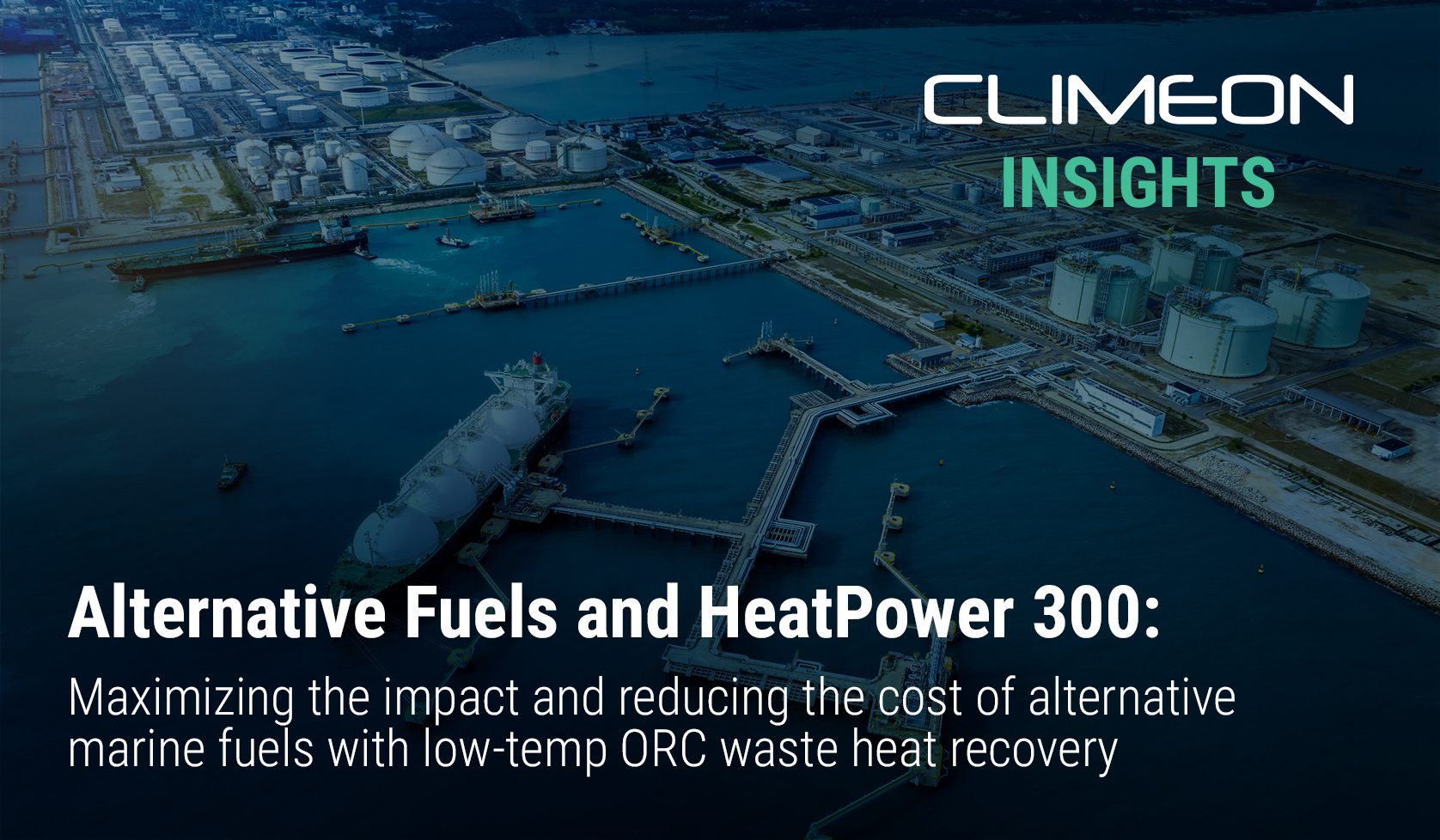How ROVs Are Transforming Offshore Oil & Gas
The oil and gas industry has always relied on innovation to explore further, drill deeper, and increase production. Today, one of the most transformative tools in offshore oil and gas...

In response to increasing environmental regulations, a significant number of shipowners and operators are planning to introduce ‘green fuels’ into their sustainability strategies. By transitioning to alternative fuels, shipping companies can lower greenhouse gas emissions and comply with incoming regulations.
However, the increased cost associated with environmentally friendly marine fuels may prove to be a barrier to decarbonization. Furthermore, ongoing research and development means there is a limited choice of lower carbon fuels currently available. Due to this, it’s vital that shipowners and operators can achieve meaningful emissions reductions in the short-term and reduce the cost of alternative fuels as they become more widely available.
In our latest Insights article, we explore the role low-temp ORC waste heat recovery can play in maximizing the impact while reducing the cost of alternative marine fuels. To find out more, download our latest Insights article here.
Can Alternative Fuels Decarbonize the Maritime Industry?
Alternative fuels can certainly deliver substantial emissions reductions, once they’re widely available and cost-efficient. Until then, the continued use of traditional maritime fuels or the implementation of dual-fuel engines means that many vessels will still emit GHG emissions.
Despite the benefits alternative fuels can offer, there is unlikely to be a sole solution that eradicates GHG emissions entirely. Instead, shipowners and operators can successfully decarbonize their fleets by integrating a range of sustainable solutions and technologies.
As shown by the latest results of the CHEK project, when numerous sustainable technologies are incorporated on to a vessel, it can maximize emissions reductions and increase energy efficiency. With this approach, shipping companies can leverage the benefits of alternative fuels in conjunction with additional on-board tech to enhance performance and further reduce harmful emissions.
Can ORC Waste Heat Recovery Systems Work with Alternative Fuel Engines?
Absolutely. Waste heat recovery (WHR) systems convert on-board waste heat into sustainable electricity. With access to this clean, carbon-free power, ships are less reliant on generators and, therefore, use less fuel and produce fewer emissions.
Although the transition to environmentally friendly fuels may reduce the availability of high-temperature on-board waste heat, low-temperature waste heat will continue to be available and accessible.
It’s vital, therefore, that shipowners and operators consider the future availability of waste heat at varying temperatures when selecting a WHR system for their vessels.
Futureproof Your Fleet with Climeon’s HeatPower 300 Technology
Climeon’s HeatPower 300 Marine system offers low-temp ORC WHR at temperature ranges of approx. 80 – 100 degrees C, which enables the system to generate clean electricity from on-board cooling water.
As dual-fuel engines and alternative fuel engines are added to vessels, cooling water will still be used and will remain accessible for the HeatPower 300 system. Due to this, Climeon’s HeatPower 300 technology is compatible with these engines and will continue to deliver cost-efficient increased energy efficiency, reduced fuel consumption and enhanced emissions reductions.
In contrast, many other WHR systems rely on high-temperature exhaust gases to generate electricity. As some environmentally friendly fuels are likely to reduce the availability of thermal energy in these exhaust gases, the performance and output of these systems may be negatively impacted by the transition to lower carbon fuels.
Designed by marine engines, Climeon’s HeatPower 300 Marine system is built for the future. Whether you’re already using dual-fuel or alternative fuel engines, planning to transition to ‘green fuels’ in the future or still finalizing your decarbonizing strategy, our HeatPower 300 technology can provide meaningful environmental and economic benefits in both the short and long-term.

Sign up for gCaptain’s newsletter and never miss an update

Subscribe to gCaptain Daily and stay informed with the latest global maritime and offshore news
Essential news coupled with the finest maritime content sourced from across the globe.
Sign Up